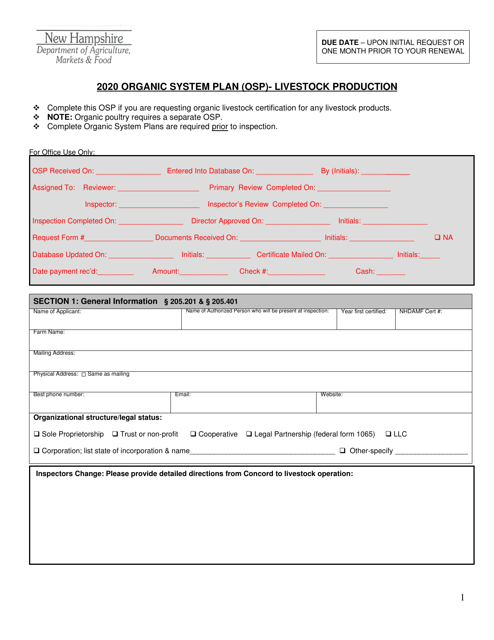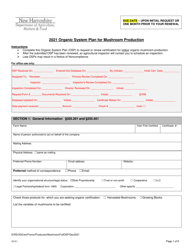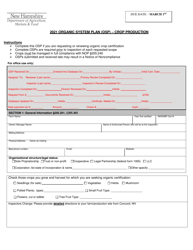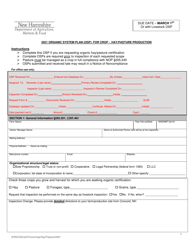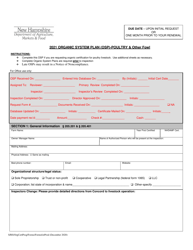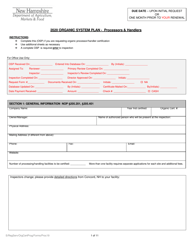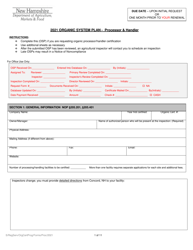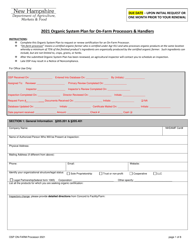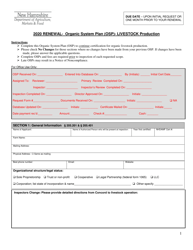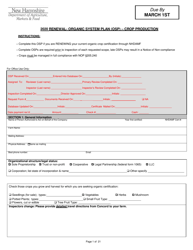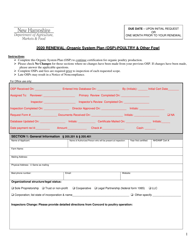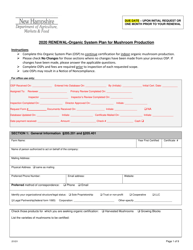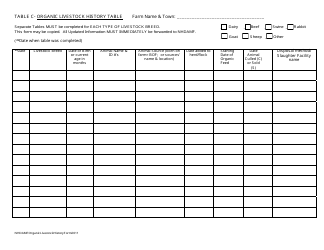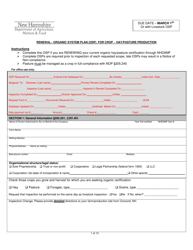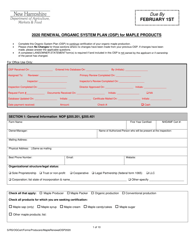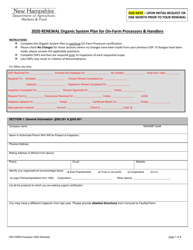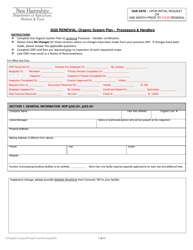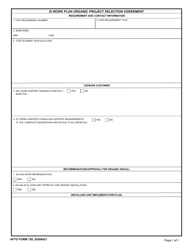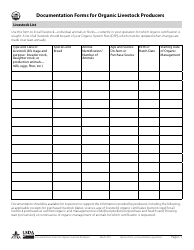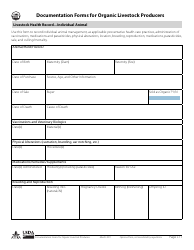This version of the form is not currently in use and is provided for reference only. Download this version of
the document
for the current year.
Organic System Plan (Osp)- Livestock Production - New Hampshire
Organic System Plan (Osp)- Livestock Production is a legal document that was released by the New Hampshire Department of Agriculture, Markets & Food - a government authority operating within New Hampshire.
FAQ
Q: What is an Organic System Plan (OSP)?
A: An Organic System Plan (OSP) is a written document that outlines how a livestock producer will manage their operation following organic standards.
Q: What is livestock production?
A: Livestock production refers to the raising and breeding of animals for various purposes, such as producing food, fiber, or other products.
Q: What is the significance of an OSP in livestock production?
A: An Organic System Plan (OSP) is significant in livestock production as it ensures that the operation is following organic standards and practices.
Q: What are organic standards?
A: Organic standards are guidelines and regulations that govern the production, handling, and labeling of organic products. These standards prohibit the use of synthetic pesticides, antibiotics, and genetically modified organisms (GMOs).
Q: Who requires an OSP for livestock production?
A: Livestock producers who want to be certified organic by a USDA-accredited certifying agent are required to have an Organic System Plan (OSP).
Q: What should be included in an OSP for livestock production?
A: An OSP for livestock production should include information about the farm's practices, inputs used, record-keeping procedures, and how the operation will comply with organic standards.
Q: Why is record-keeping important in livestock production?
A: Record-keeping is important in livestock production as it allows the producer to track inputs, animal health, and production practices. It is also necessary for organic certification and verification.
Q: Can livestock producers in New Hampshire use synthetic pesticides or antibiotics?
A: No, organic livestock producers in New Hampshire are not allowed to use synthetic pesticides or antibiotics. They must follow organic standards, which prohibit the use of these substances.
Q: How can a livestock producer in New Hampshire become certified organic?
A: A livestock producer in New Hampshire can become certified organic by developing an Organic System Plan (OSP), implementing organic practices, and working with a USDA-accredited certifying agent to complete the certification process.
Q: What are the benefits of organic livestock production?
A: Some benefits of organic livestock production include higher animal welfare standards, reduced environmental impact, and the production of organic products that are in demand by consumers.
Form Details:
- The latest edition currently provided by the New Hampshire Department of Agriculture, Markets & Food;
- Ready to use and print;
- Easy to customize;
- Compatible with most PDF-viewing applications;
- Fill out the form in our online filing application.
Download a fillable version of the form by clicking the link below or browse more documents and templates provided by the New Hampshire Department of Agriculture, Markets & Food.
